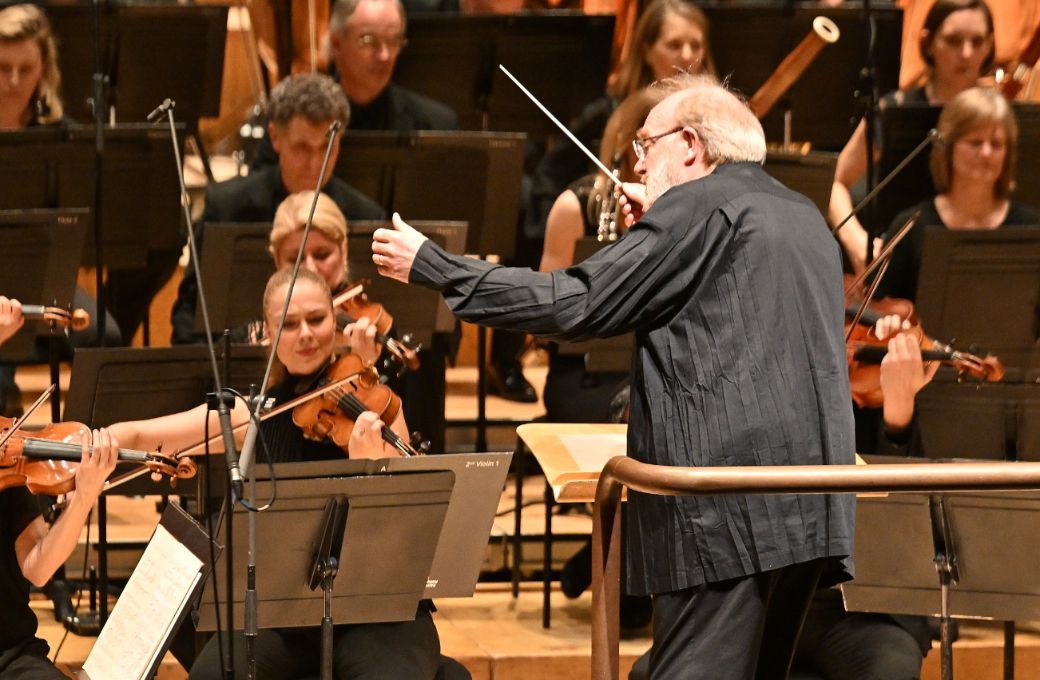A duo of works retelling the stories of two mythical men facing extreme challenges made up the programme of this most energising of concerts at the Barbican. Martyn Brabbins and the BBC Symphony Orchestra and Chorus were on top form projecting these visceral, ancient narratives.
Iain Bell’s already impressive CV as a composer has seen him flourish in the operatic world outside of the UK. The only major commission from his native land came from English National Opera with Jack the Ripper: The Women of Whitechapel in 2019. The choice of Beowulf as his subject matter is an illustration of Bell’s boldness in choosing dramatic source material, suiting his theatrical experience. Written with the distinctive Wagnerian tenor Stuart Skelton’s voice and character in mind, the Australian Heldentenor's last minute withdrawal because of ill health could have proved disastrous. However, Charles Styles was able to step in and produce his own version of the heroism required for the part. Ruth Wilson added her own theatricality to proceedings as the narrator, moving the action along and, in the composer's words, “helping to restore the female voice and perspective”. The only problem with this device, particularly at the beginning of the performance, was that Wilson’s voice was not projected strongly enough to cut through the female chorus that accompanied it. Later, it seemed if as the producers increased the volume of her microphone to better effect.
Beowulf is a very impressive achievement. Bell’s musical style is unique, very much post-post-romantic with lush orchestration and flowing melodic material, but it is in the treatment of the short-breathed themes and the rich harmonic underpinning, where the composer goes his own way. The telling of the Beowulf story, a mainly gory affair of heroic slaughter, was well managed and forcefully projected. The BBC Symphony Chorus were splendidly nimble in the tricky quick fire changes of metre and textures. The orchestral contribution, so detailed and restless for the majority of its 45 minutes, was played with clarity and confidence by the BBCSO. Only with the death of Beowulf and the lament that follows does the drama subside, finding a touching simplicity. A work, then, that captivates on first hearing, but which will surely reveal new layers on repeated listening.

Ralph Vaughan Williams wrote Job, a Masque for Dancing, in the late 1920s with the vague of hope of gaining the interest of Diaghilev and his Ballets Russes, but the biblical scenario was rejected very early on by the impresario. However, the composer was not deterred and went on to produce his greatest stage work and one of his most important works in any form. As a concert piece it is extremely effective and moving, its grand arching structure and symphonic development of themes holding the listener over its 45-minute span. Why it’s not a regular part of the repertoire remains a mystery.
Brabbins' interpretation went for the long game. The opening scene with its grand Saraband of the Sons of God, was measured and Satan’s Dance of Triumph lacked the rhythmic edge of some renditions. However as it progressed, with the ever-increasing pressure of the climaxes, it became obvious that Brabbins was pacing the whole performance to perfection. By the time the beautiful music of the opening returns and Job’s suffering is resolved, a sense of a having arrived after a difficult journey was palpable in the hall.


